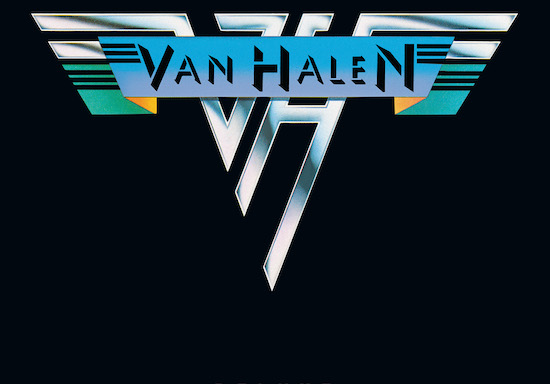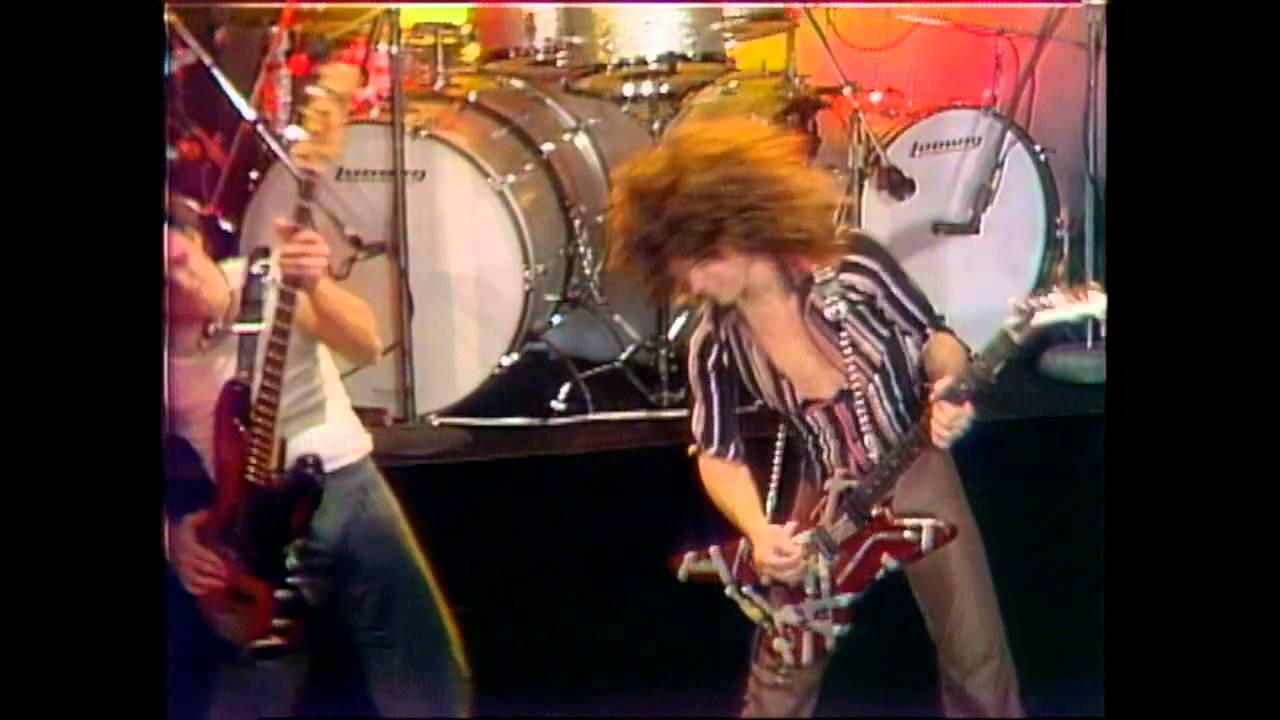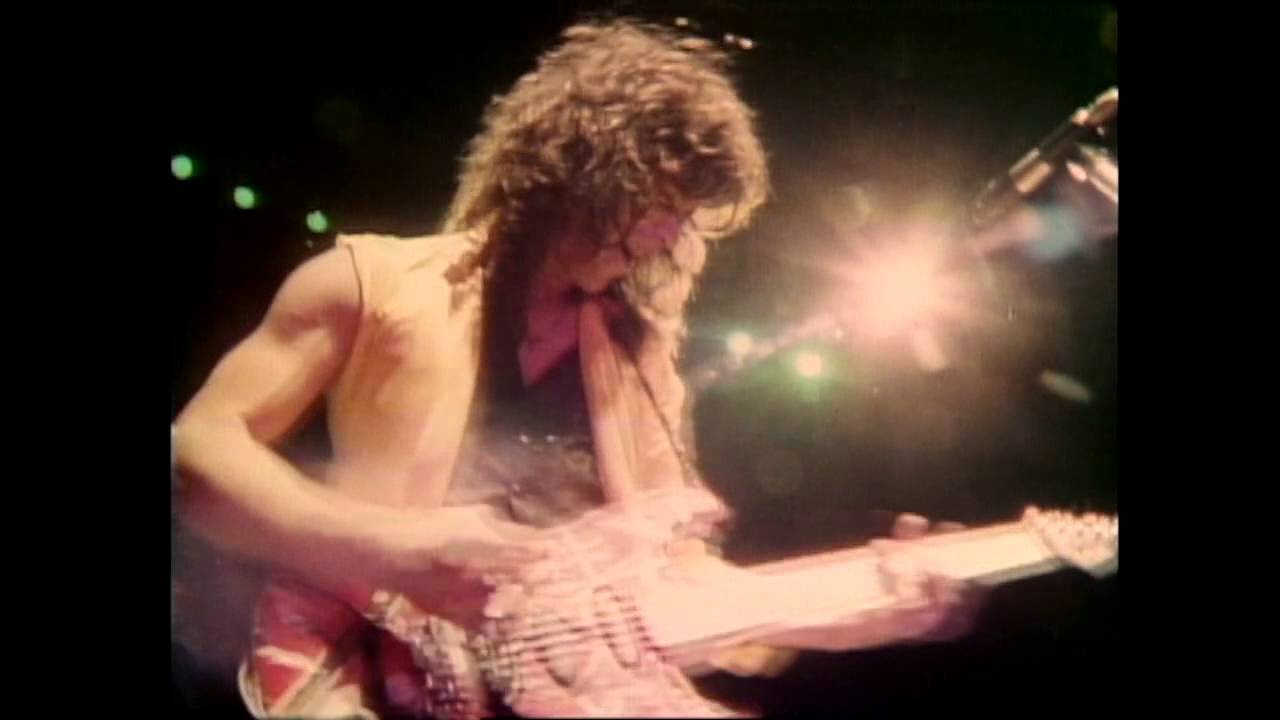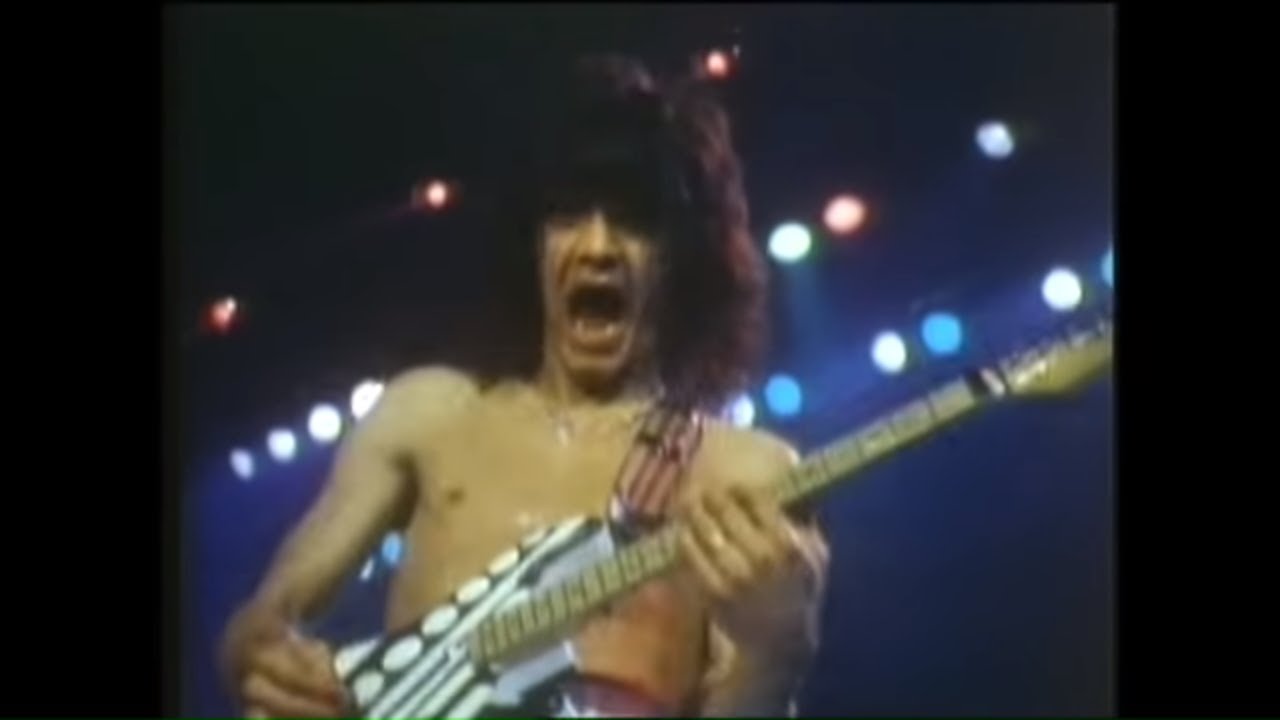There’s one thing pretty much everyone knows about Van Halen, which is that their contract rider for gigs contained the following stipulation: "There will be no brown M&Ms anywhere in the backstage area or immediate vicinity, upon pain of forfeiture of the show with full compensation." The popular notion was that this was proof of Van Halen’s rock star pettiness, their selfishness, their capricious remove from the realities of normal life.
The reality, as David Lee Roth explained in his magnificently gonzo memoir Crazy From The Heat, was somewhat different. The M&M clause was hidden deep within the band’s technical requirements, as test of a promoter’s attention to detail. "So, when I would walk backstage, if I saw a brown M&M in that bowl … well, line-check the entire production. Guaranteed you’re going to arrive at a technical error. They didn’t read the contract. Guaranteed you’d run into a problem. Sometimes it would threaten to just destroy the whole show. Something, like, literally life-threatening."
Nevertheless, this is the kind of thing Van Halen get remembered for. For M&Ms. For groupies. For big hair. For acrimonious splits, in which charter members – Roth, bassist Michael Anthony – are dispensed with and banished. For being the embodiment of a particular strain of California rock: shallow, self-obsessed, narcissistic, substance-free, sun-kissed and empty. That, to a certain kind of music fan, is the Van Halen legacy, and there’s a degree of truth in that assessment.
There’s another way to look at it, though. The other week in tQ, David Bennun assessed Michael Jackson’s Bad and decided: "The most influential artists of the last 40 years – and perhaps ever, depending on how one attempts to quantify it – are Michael Jackson and Whitney Houston." He’s right: if you remember that "most influential" does not actually mean "most likely to spawn copycat groups who release three acclaimed indie singles" and really should mean "most likely to affect the sound of the music the greatest number of people listen to", then it’s pretty much unarguable.
Except for one thing.
Van Halen should be on the list, too.
I’m not writing this apologetically, or ironically, or to provoke. I love Van Halen. I fucking love Van Halen. I hate their legacy, which consists of inspiring around 75% of the worst groups in the history of music. I have, literally, no interest in anything they recorded after Roth was replaced by Sammy Hagar. I have, literally, less than no interest in anything they recorded after Hagar was replaced by Gary Cherone. But given a desert island choice between any of the first six Van Halen albums (except Diver Down*) and a comparable run from pretty much any other group, I’d take Van Halen. I’d take Van Halen’s first six over the Beatles’ first six, the Stones’ first six, or the first six of any serious-minded band with a revolutionary approach to music and a small coterie of joyless fans who’ve never absently sung along to a big pop hit playing over a supermarket sound system.
I’d go further than saying Van Halen are one of the three most influential artists of the last 40 years. I’d say they’re the most influential rock band of the last 40 years. I’d say they’re the second most influential rock band of all time, after the Beatles. I’d say they deserve to be hailed as among popular music’s greatest pioneers. They are the equals of Kraftwerk, pioneers of a genre all their own that then permeated through music. And their wings logo was really, really fucking cool.
If you look through pretty much any US album chart of the second half of the 80s, after 1984 had finally ensured they were just as big a pop group as a rock band, you’ll see the influence of Van Halen all over the place. (It’s worth me stipulating that "the influence of Van Halen" does not mean "this record sounds exactly like Van Halen" but "this is a record that would probably not have been made without Van Halen’s existence. And if it did, it would have sounded markedly different.")
So, at random, the Billboard top 100 for 2 July 1988. (Really, I did pick this week at random, the first one I chose, Having found such an illustrative one, I’m not going to risk my theory by picking another.)
No 1 – OU812 by Van Halen themselves (Hagar era. Haven’t listened. Not going to).
No 3 – Hysteria by Def Leppard (the group who had the clearest vision of the possibilities opened up by Van Halen’s unashamed crossing of pop music and hard rock).
No 5 – Open Up And Say … Ahh! by Poison (the Poundland Van Halen).
No 8 – Appetite For Destruction by Guns N’Roses (no, they don’t sound like Van Halen. But they came out of the hair/glam/whatever metal world Van Halen’s imitators created).
No 10 – Savage Amusement by Scorpions (the ancient German metal band had dropped all the spacey noodling when the late 70s metal wave hit. In the 80s they added a distinctly Halenish spit and polish).
No 28 – Pride by White Lion (the Poundstretcher Van Halen)
No 31 – Ram It Down by Judas Priest (one of the Judas Priest albums Judas Priest fans don’t much like. Because it’s slathered in synthetic effects and sounds designed to fit alongside mainstream pop-metal. Which was invented by Van Halen. But we’ll return to Judas Priest later. They’re relevant.)
No 32 – Lita by Lita Ford (the female Van Halen).
No 45 – Surfing With The Alien by Joe Satriani (space-age pop metal guitar virtuoso. Tenner says he listened to ‘Eruption’ every night a decade earlier).
No 46 – Kingdom Come by Kingdom Come (compared more often to Zeppelin. But it’s Zeppelin filtered through mainstream pop-metal. Which was invented by Van Halen. We won’t return to Kingdom Come later).
No 56 – Operation: Mindcrime by Queensryche (prog rock filtered through mainstream pop-metal. Which was invented by Van Halen. We won’t return to Queensryche later, either).
No 63 – Odyssey by Yngwie Malmsteen’s Rising Force (see entry for No 45).
No 64 – All System by Vinnie Vincent Invasion (he’d been in Kiss. Do you think he would have been in Kiss if Kiss had been able to fulfil their desire to get Eddie Van Halen? Absolutely by the numbers 80s pop metal. Which was invented by Van Halen).
No 67 – Skyscraper by David Lee Roth (such a limited singer wouldn’t have had a solo career in the first place if he hadn’t been in Van Halen)
No 81 – Second Sighting by Frehley’s Comet (I’ll accept argument on this one. Yes, Frehley had previously had a hand in a distinctive hard rock sound, Kiss’s Dinosaur Plod. But there’s a lot more sleek, synthetic pop metal in this than there is Dinosaur Plod).
No 83 – By Any Means Necessary by Boogie Down Productions (nothing in common with Van Halen. Just checking you’re still reading. Think of this as the M&M test of the list).
No 87 – Heart Attack by Krokus (see entry for No 10. Substitute Swiss for German. If you think an unremarkable Swiss band could have got in the US album charts at any other point other than during the Pop Metal Hegemony, you’re mad. And when you say, "What about Double?" I reply, ‘Captain Of Her Heart’ was a hit on the singles chart, but its parent album never charted).
No 91 – Whitesnake by Whitesnake (see entry for No 10. Substitute British for German and bluesy for spacey).
That was going to be a rundown of the whole top 200, but even as I made my case, I didn’t realise quite how Van Halen-indebted the chart was going to be – 17% of that week’s top 100 have Van Halen in their DNA – and I’m not sure anyone needs to read an even longer list of terrible hair metal albums. I certainly don’t want to write one.
But that list is a testament to a pretty much unparalleled run of influence – not over the music that was being critically approved, or the music being made by people who had some big notion about the function of music, or even over music that had any lasting worth. Van Halen’s influence, like that of Houston and Jackson, was over music that people actually bought and listened to. And they exerted that influence because they were revolutionary.
Chuck Klosterman put it succinctly in an interview with Eddie Van Halen a few years back: "Van Halen radically modernised the trajectory of American metal by making it less heavy, more melodic, less gothic, and more inclusive." Or as Roth put it, a little less prosaically, in Crazy From The Heat: "We were not afraid of defying convention, breaking the rules. If you think back to the way we looked in the late seventies, this was the age of the deep sabbath, black purples, whatever it was … We showed up with our cool little designer pants that we’d bought in Paris on the Champs-Elysees, in our high-heeled shoes and with our hair styled and everything. Oh, man. We defied all convention. The media, the rock critics squealed like wieners on a barbecue. Wholly unacceptable."
To put it simply, from the release of their first album in 1978 until the grunge explosion offered an alternative to the Pop Metal Hegemony in the early 1990s, if an American hard rock band wanted to be noticed they had to have followed the Van Halen template. They might do that through looks: dressing less like harbingers of doom, or men who spent all day underneath cars, and more like peacocks. They might do it by leavening their riffs with harmonies, as Michael Anthony did with Van Halen, and by eschewing the devil’s interval for bright, pop progressions. They might do it by having a guitarist who could play hammer-ons at 6,000mph while grinning goofily at the camera (with ‘Eruption’, the solo guitar piece on the first Van Halen album, Eddie Van Halen reinvented rock guitar as surely as Jimi Hendrix had more than a decade before. It doesn’t matter if Ronnie Montrose had been playing in a similar same style beforehand, it really doesn’t. Because what people remember is Eruption. That was the year zero.) For nearly 15 years, virtually all popular American rock music was made by the children of Van Halen.
Don Dokken, whose own group was among those who dragged themselves into the charts by grabbing on to Van Halen’s coattails, described seeing Van Halen in 1978 and how "it changed the way I looked at music and performing forever". His band were supporting Van Halen at the Starwood club, and Dokken left his dressing room to watch after hearing something unfamiliar from the stage. "Eddie was playing with both hands in the neck. This was the first time I had ever seen anybody do this," Dokken said. "It was the biggest, punchiest guitar sound I had ever heard. Then, to top it off, there was David Lee Roth, doing his antics and performing like he owned the world … Van Halen showed everyone they were going to change the face of rock music."
Julian Cope, unsurprisingly, has a rather more flowery way of phrasing what made Van Halen remarkable: "So long as the songs contained the pre-determined codes – off-kilter riffs, unmelodic chromatic strato-guitar solo, showmanic look-at-me vocals, and faultline punishing ur-bass – Van Halen COULD NOT fail."
When you listen to the early Van Halen records now, they still sound weirdly futuristic. The first Van Halen record does not sound like it was made in 1978. If you heard it blind, you would guess it was from some time in the mid-80s. It’s not just Ted Templeman’s production – clean and sharp, the sharpness coming not just from Eddie Van Halen’s guitar tone, but also from the minimal overdubbing; it would have been easy to clog up the album with sludge, but that never happens. It’s really evident in something more important: Van Halen had largely expunged the blues from their music, which was a) not something hard rock bands normally did and b) odd, given that Eddie Van Halen’s greatest hero had been Eric Clapton.
I’m not claiming the blues were completely gone. The chassis of ‘I’m The One’ is still a hyperspeed blues shuffle, and EVH performs a few blues vamps on it. But if, say, Led Zeppelin were a band based on one generation’s remove from the blues, Van Halen were already – while Zeppelin were still extant – several generations down the removal line. It’s as if Zeppelin were the elderly great grandparents going on about how good television had been back when you only had two channels, while Van Halen are the kids who never ever turn on the TV, because they’re all over YouTube, or watching Netflix on their phone.
I said we’d return to Judas Priest, and so we will. Because you can make the case that several thousand miles away, they were undergoing the same blues removal process. And they were. Sort of. But not to the same extent – the 1976 album Sad Wings of Destiny still has a post-Sabbath swing to it; Stained Class – released the same day as the first Van Halen record – gets closer still. But Stained Class still sounds like a 70s album in a way Van Halen doesn’t: it’s tinny and underpowered and, crucially, it doesn’t have any trace of pop. Pop forced the blues to one side in Van Halen; there simply wasn’t room for both. Van Halen came to a fork in the road and took the path no one else travelled. In fact, they took the path no one else had even noticed.
Nevertheless, as I said a few hundred words ago, as great as Van Halen were, their influence proved to be almost entirely malign. The Van Halen copyists were, without exception, inferior in every way. They were, in fact, pretty much the worst bands rock music ever produced. Mötley Crüe? Poison? Cinderella? Warrant? Give me a break. Why people bought that crap in such colossal numbers remains one of music’s great mysteries. It’s a legacy Roth – always a fan of soul and R&B, not hard rock – seems at best ambivalent about, too.
"I don’t know who coined the phrase imitation is the sincerest form of flattery," he told me in 2012, in the course of an interview that took in sheepdog training, the demographics of southern California, Beat Takeshi, primary education and an imitation of Bruce Springsteen, all in half an hour. "I think David Mamet coined the phrase imitation is the sincerest form of stealing. Probably a litigating attorney coined it first. OK, if imitation is the sincerest form of flattery then there are a whole lot of dogs out there. When it’s done well and you see some of your teachings out there, then you must have taught somebody something, whether you have kids or you taught your girlfriend how to play chess or ride a horse or you taught somebody how to, I don’t know, drive a car, you feel something. At worst I feel like I’m driving past a traffic accident and I’m relieved no one was killed."
But the extent of the influence is undeniable. It is colossal. So, everyone who heard the first Velvet Underground album formed a band, did they? Yes, but very few of those bands were heard by anyone else. Dozens of the bands who were formed after the first Van Halen album were heard by millions upon millions of people. It is likely this is the only time you will read this sentence: Van Halen were more influential than the Velvet Underground could ever have been in Lou Reed’s wildest dreams.
And, because hair metal was so utterly reprehensible, Van Halen’s influence spread in the other direction, too. No one formed a band because they were sick of the Velvet Underground’s ubiquity and wanted to make music that answered their own needs. Lots of people formed bands because hair metal offered them nothing, something Roth was aware of in 1984, when he told the writer Lisa Robinson: "I know for a fact that to a small degree, we’ve bred a small legion of imitators, copycats, mimics, people who are using Van Halen for their sole inspiration. But even more important than that are all the people who are just disgusted and revolted by our music and our presence and our appearance and the way I do interviews, and they’ve been forced to come up with some very substantial musical alternatives to Van Halen-type rock, and that’s why we have new wave."
Van Halen don’t deserve recognition for their influence, though. They deserve it for being great. For being one of the greatest bands ever. For being a band who could confound and confuse even as they appeared to be the simplest proposition ever. For being the band who made preposterousness a valid choice. For David Lee Roth, saying on stage at the Lewisham Odeon in May 1978, when they supported Black Sabbath: "Lewisham! Rock & roll capital of the universe!"
When I spoke to Roth in 2012, I concluded by asking him which song summed up Van Halen best. Let his answer, nonsensical, brilliant and allusive, stand as testimony to the band’s brilliance. And, put it this way, Vince Neil would never have come up with this.
"I think ‘Jump’. The chorus – you can translate it into 15 different things. It’s ambiguous enough that you create it: you’re forced to interact and use your imagination. What do I mean by that? It can mean several things. I just watched a samurai epic. They interview Beat Takeshi at the end. He’s got his sunglasses and a beret, talking in Japanese, and they say: ‘The character that dies in the middle comes back at the end and has a funny conversation with the hero. Is that a ghost or an idea?’ And he says: ‘I’m not sure.’ So I had to go back and watch it six more times, which means it’s a device on his part, which is even more fascinating. And with Van Halen there’s a lot of times I’m not really sure. I think I am. But then you might say, ‘"Might as well jump" doesn’t mean that at all, it means world peace, David.’ I think good music does that: is this epic or is it pompous? It it articulate or is it, ‘Er, I’m sorry about this but there’s a few too many notes’? Is there a chance you’re right? I don’t know – better go back and listen again."
Listen again to Van Halen. Go on.
- I listened again to Diver Down while I was writing this. Clearly, it’s nowhere near as good as the other five original Roth-era Van Halen albums. But it’s also great in a quite-clearly-tossed-off way, what with the five covers, three instrumentals and one a cappella joke at the end. Julian Cope refuses to acknowledge Diver Down or its successor, 1984. On 1984, he says, Van Halen step outside their own metaphor and fail as a result. I think he’s wrong. On 1984, Van Halen refuse to accept the limitations of their own metaphor and become the band that is everything all at once – synthpop, hard rock, thundering metal, art rock (yes. If Talking Heads had come up with any of the guitar lines in ‘Top Jimmy’, you’d be all over it like a cheap suit. But they wouldn’t have. Because Talking Heads were never as good as Van Halen). It’s their best album.





